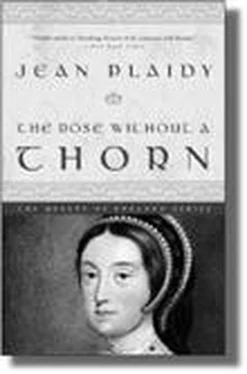Jean Plaidy - Mary, Queen of France - The Story of the Youngest Sister of Henry VIII
Здесь есть возможность читать онлайн «Jean Plaidy - Mary, Queen of France - The Story of the Youngest Sister of Henry VIII» весь текст электронной книги совершенно бесплатно (целиком полную версию без сокращений). В некоторых случаях можно слушать аудио, скачать через торрент в формате fb2 и присутствует краткое содержание. Жанр: Старинная литература, на русском языке. Описание произведения, (предисловие) а так же отзывы посетителей доступны на портале библиотеки ЛибКат.
- Название:Mary, Queen of France: The Story of the Youngest Sister of Henry VIII
- Автор:
- Жанр:
- Год:неизвестен
- ISBN:нет данных
- Рейтинг книги:4 / 5. Голосов: 1
-
Избранное:Добавить в избранное
- Отзывы:
-
Ваша оценка:
- 80
- 1
- 2
- 3
- 4
- 5
Mary, Queen of France: The Story of the Youngest Sister of Henry VIII: краткое содержание, описание и аннотация
Предлагаем к чтению аннотацию, описание, краткое содержание или предисловие (зависит от того, что написал сам автор книги «Mary, Queen of France: The Story of the Youngest Sister of Henry VIII»). Если вы не нашли необходимую информацию о книге — напишите в комментариях, мы постараемся отыскать её.
Mary, Queen of France: The Story of the Youngest Sister of Henry VIII — читать онлайн бесплатно полную книгу (весь текст) целиком
Ниже представлен текст книги, разбитый по страницам. Система сохранения места последней прочитанной страницы, позволяет с удобством читать онлайн бесплатно книгу «Mary, Queen of France: The Story of the Youngest Sister of Henry VIII», без необходимости каждый раз заново искать на чём Вы остановились. Поставьте закладку, и сможете в любой момент перейти на страницу, на которой закончили чтение.
Интервал:
Закладка:
He was now free—a widower. It was true he had two little daughters, but he was fond of them and they presented no difficulty. They were well looked after and he visited them from time to time; his visits were the highlights in their lives and they adored him.
Life had taken a very pleasant turn. The old King had died and his friend was now in the supreme position; Henry had a wife of his own and was no longer envious of Charles’s married state. The friendship had not slackened in any way; in fact it grew stronger. At all the coronation jousts and tourneys it was Charles Brandon who was closest to the King. He had a rival in Sir William Compton, but there was nothing new in this because Compton had been a page of Henry’s when he was Duke of York, for the boy had been a ward of Henry VII. Compton was a kindred spirit and Henry was drawn to him, but he was no Brandon; he was neither as tall, handsome, nor as skilled in the joust. Compton had been a butt for them both. “Come on, Compton, you try now,” Henry would say; and he and Charles would look on, mildly contemptuous of the other boy. But Henry had a great affection for him all the same, and Charles had at times wondered whether the Prince might not feel more tender toward one who was far behind him than another who was his equal.
Henry did not forget his friends, and those who had been close to the Prince of Wales were now as close to the King. He at once appointed Compton Groom of the Bedchamber, and shortly afterward he was Chief Gentleman of the Bedchamber, then Groom of the Stole and Constable of Sudeley and Gloucester Castles. But there were equal honors for Charles. Immediately on his accession Henry made his friend Squire of the Royal Body and Chamberlain of the Principality of North Wales; later he became Marshal of the King’s Bench and the office of Marshal of the Royal Household was promised him.
It became clear that King Henry VIII was not going to keep those solemn old men, appointed by his father, in office; he was going to surround himself with the young and the merry. So Charles could look forward to great honors and a successful life at Court.
It was at this stage that Charles became aware that he had attracted the attention of the King’s young sister.
Charles knew that he must act with the utmost care. To be the chosen companion of the Prince of Wales was pleasant and diverting; to be King’s favorite could be dangerous. In those early days of kingship, Henry was a careless giant scattering handfuls of gifts on those he favored, but there were many ambitious men ready to scramble for the treasures he threw so lightheartedly, ready to kick aside those for whom they were intended. And for all his ready bonhomie , temper could spring up suddenly behind those merry blue eyes, turning a smile to a scowl in a matter of seconds.
And at every ball and banquet Charles was thrown into the company of the Princess Mary. She herself arranged this.
There was little of the Tudor caution in Mary; she belonged completely to the Plantagenet House of York. Thus recklessly must her maternal grandfather have conducted himself when he defied his counselors and married the beautiful Elizabeth Woodville, scorning political advantage for the sake of love.
She fired his imagination and his senses; he was certain that if he did not take care she would lead him to such great disaster against which he would be powerless to defend himself. He realized that in all his affairs with women he had never been so close to danger as he was at this time. He knew he should avoid her company. But how could the King’s favorite courtier and the King’s favorite sister, both of whom he loved to have beside him, keep apart?
Whenever Henry wanted to plan some entertainment—and in these early years of his reign he was continually planning them—he would cry: “Brandon! Mary! Come here. Now I would plan a masque.”
And the three of them would sit together whispering in a window seat, Mary between them, slipping her arms through theirs with a childlike gesture which completely deceived her brother.
Charles understood how very near he was to danger on an occasion when Henry summoned them both, with Compton, to his bedchamber.
Henry’s eyes were alight with pleasure. “News, my friends,” he said, “and I tell you before it becomes known to any others. My hopes are about to be fulfilled. The Queen is with child.”
Mary impulsively went to her brother and, putting her arms solemnly about his neck, kissed him. Henry held her tightly against him, tears glittering in his eyes.
“Dearest, I am so happy for you,” said Mary.
“God bless you, little sister. I told Kate you should be the first—outside ourselves—to know it.”
Charles took the King’s hand and kissed it. Then he cried: “God bless the Prince of Wales.”
“Your Grace,” murmured Compton, “there is no news I would rather have heard.”
“Yes, yes,” said Henry. “This is a happy day. You know how I long for a son. My heir … the first of them. Kate and I intend to have a quiver-full.”
“It is a good sign,” Mary told him. “So soon after your marriage.”
Henry pinched her cheek. “You talk like an old beldame. What do you know of such matters?”
“What I learn at your Court, brother,” murmured Mary with a curtsy.
Henry burst into loud laughter. “Listen to this sister of mine! She’s a pert wench and not chary of making this known to her King.”
“She is sure of the King’s love,” answered Compton.
Henry’s eyes were very sentimental as he put an arm about Mary. “Aye,” he said, “and she is right to be. Pert she is, and I fancy somewhat wayward, yet she is my sister and I love her dearly.”
Mary stood on tiptoe and kissed him again.
“You see,” said Henry, “she would use her wiles on me. It is because she is going to ask me for something, depend upon it. What is it, sister?”
Mary looked from Compton to Brandon and her eyes rested a second or so on the latter.
“I shall not abuse your generosity by asking for small favors,” she replied. “When I ask it shall be for some great boon.”
“Hark to her!” cried Henry delightedly. “And what think you? When she asks, shall I grant it, eh, Compton? Eh, Brandon?”
“Of a certainty,” answered Compton.
“Our friend Charles is silent,” said Henry. “He is not sure.”
“I am sure of this,” Charles answered, “that if it is in your Grace’s power to grant it, grant it you will. But the Lady Mary may ask for the moon, and that, even the greatest King in Christendom could not grant.”
“If I wanted the moon, I should find some means of getting it,” replied Mary.
“You see, our sister is not like us mortals.” Henry was tired of the conversation. “We shall have the foreign ambassadors to entertain this Shrovetide, and I shall give them a banquet in the Parliament Chamber of Westminster; afterward there shall be a masque. We shall dance before the Queen and it shall be in her honor. She herself will not dance. We have to think of her condition. When the banquet is over I shall disappear and you, Brandon and Compton, will slip away with me.”
“And I shall too?” asked Mary.
“But of course. You will choose certain ladies. Some of us will dress ourselves in the Turkish fashion—not all though. Edward Howard and Thomas Parr are good dancers; they shall be dressed as Persians, and others shall wear the costume of Russia. The ambassadors, with Kate and the rest of the spectators, will think we are travelers from a foreign land. …”
“Oh,” cried Mary, “it is to be that kind of masque! I tell you this, I shall take the part of an Ethiopian queen. There will be veils over my face, and perhaps I shall darken my skin … yes, and wear a black wig.”
Читать дальшеИнтервал:
Закладка:
Похожие книги на «Mary, Queen of France: The Story of the Youngest Sister of Henry VIII»
Представляем Вашему вниманию похожие книги на «Mary, Queen of France: The Story of the Youngest Sister of Henry VIII» списком для выбора. Мы отобрали схожую по названию и смыслу литературу в надежде предоставить читателям больше вариантов отыскать новые, интересные, ещё непрочитанные произведения.
Обсуждение, отзывы о книге «Mary, Queen of France: The Story of the Youngest Sister of Henry VIII» и просто собственные мнения читателей. Оставьте ваши комментарии, напишите, что Вы думаете о произведении, его смысле или главных героях. Укажите что конкретно понравилось, а что нет, и почему Вы так считаете.












